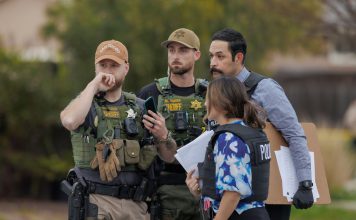Dear Editor:
Feb. 12, 2001, The Dispatch published a Guest column written by
Pastor Eric Smith, the column was titled
”
Squaring the separation doctrine with history.
”
The Dispatch published my rebuttal, relating some of the
misleading items in the column on Feb. 22, 2001.
Dear Editor:
Feb. 12, 2001, The Dispatch published a Guest column written by Pastor Eric Smith, the column was titled “Squaring the separation doctrine with history.” The Dispatch published my rebuttal, relating some of the misleading items in the column on Feb. 22, 2001.
On April 29, 2003, Smith reused his old column, this time titled “A few historical facts and thoughts about the history of separation of church and state in the United States.” After adding a new opening paragraph directed at columnist Dennis Taylor.
Pastor Smith points out that the concept of “separation of church,” as we now understand it was completely unknown for “… the first 150 years of American political thought.” There is a flaw in his observation, there was no “American political thought,” because there was no American political system at work in the British colonies. The concept of “separation of church” was Jefferson’s own interruption on the First Amendment and was not used as a “concept” for another 170 years. The First Amendment was intended to prevent any possibility of the new nation being torn apart by any form of religious theocracy.
Next Pastor Smith tries to promote a myth by mixing two time periods as one. Starting with the Revolutionary period, in which documents allegedly show that the founding fathers believed that “… a righteous electorate were essential for the experiment of freedom to succeed. Because of this, they created a political climate that was encouraging to Christianity and accommodating to religion … consequently, Protestant Christianity was the prevailing religious view for the first 150 years of our nation’s history.”
Pastor Smith’s timeline is folded back on itself. He has the founding fathers, who signed the Constitution, setting up a governmental support system that “consequently” favored Protestant Christianity as the dominant religion for the first 150 years before the signing of the Constitution. He also overlooks the fact that the first 150 years of British Colonialism were the pre-nation years, that only after the signing of the Constitution did the British colonies become a nation.
The lessons that were learned by the founding fathers, as a result of religion dominating the erratic systems of law in the colonies as well in England, gave the founding fathers enough wisdom not to make the same mistakes. That is the reasoning behind the First Amendment, to abolish any possibility of it happening in the new nation.
A few paragraphs later, there is another example of flawed logic. “The only way to have true freedom of religion is to keep government out of religious affairs. This view defines religious freedom in terms of governmental neutrality toward religion in which no religion is favored over any other and neither religion nor secularism is favored over each other.”
Pastor Smith rewrites history again by alleging that, “For nearly two centuries state and federal governments have had a benevolent attitude toward religion in general and Christianity in particular.” The paradox is that this had been done while the government has remained neutral on issues of religion as well as securalism, but at the same time supporting the open hostility in the courts towards Christianity.
It would appear that Pastor Smith is lost in his own labyrinth while trying to create proofs for issues that he has to know are not true. His next move is to engage in a misleading argument about, “The courts have removed prayer from schools … securalists and separationists have managed to get personal Bibles off teachers’ desks …”
There is a side of this issue that Pastor Smith and others don’t want to talk about. That is the fact that prayer and religious instruction have only been away from the public school authorities and returned to the discretion of each student and the dictates of their own faith, without inducement or interference from any well meaning public school authorities. However, public schools may teach the history of religion and its influence on history, but the course must be taught in a secular manner.
To have purpose, one must have reasonable expectations, that what we are told can be trusted.
Harold D. Williams, San Jose
Submitted Wednesday, May 7











